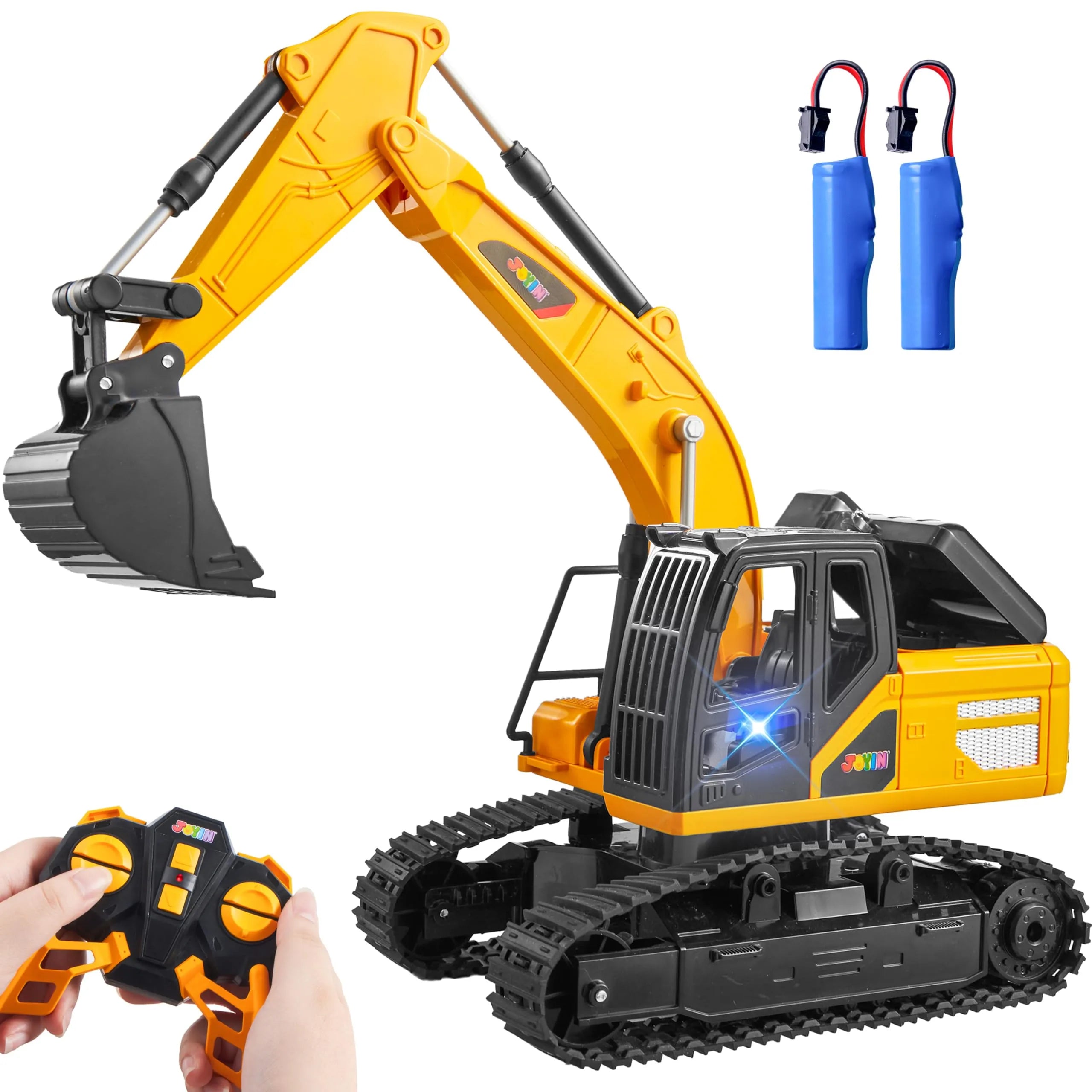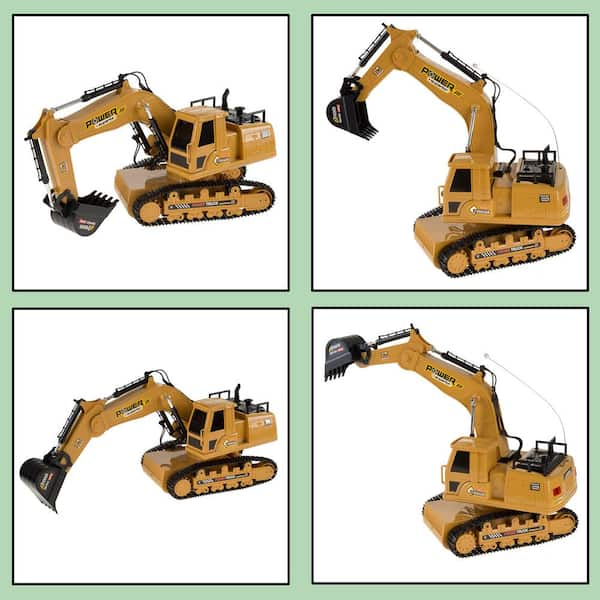Discover the Relevance of Excavator in Modern Building And Construction Projects
Excavators are vital devices in contemporary building and construction jobs. Their versatility permits them to execute a wide variety of jobs, from digging and grading to demolition and site preparation. Advanced functions, such as hydraulic add-ons and GPS, improve their capacities and effectiveness on work websites. As the market advances, the importance of excavators grows a lot more. Recognizing their function can reveal insights right into the future of building methods. What lies ahead for these equipments?
The Versatility of Excavators in Numerous Projects
Excavators are frequently connected with massive building and construction jobs, their flexibility permits them to be used in a broad range of applications, from property landscaping to utility maintenance. In metropolitan settings, excavators can navigate limited spaces to dig structures for homes or set up drain systems. Their ability to execute fragile jobs makes them suitable for landscape design tasks, where they can excavate for fish ponds or plant trees. On top of that, excavators play an important function in utility maintenance, effectively digging trenches for pipes or cords without disrupting bordering areas. In agricultural applications, they assist in land clearing up and dirt preparation. Their versatility allows them to be equipped with numerous accessories, improving their capability throughout different jobs. This complex nature of excavators not just streamlines different construction processes but additionally demonstrates their indispensable function in modern infrastructure growth and upkeep.
Trick Attributes and Sorts Of Excavators
The conversation on key features and sorts of excavators highlights the crucial features that make these devices important in building and construction. Different excavator types, each created for particular jobs, demonstrate their convenience and efficiency throughout various applications. rc excavator. Comprehending these features and categories is essential for enhancing their usage in modern-day building projects
Excavator Types Summary
Excavators play a crucial function in modern-day building and construction, supplying flexibility and performance throughout various tasks. These hefty equipment units been available in several types, each tailored for particular applications. The most usual kinds consist of crawler excavators, understood for their stability on uneven terrain, and wheeled excavators, which provide better mobility on paved surfaces. Mini excavators are preferred for small-scale projects and limited areas, while long-reach excavators are designed for deep excavating. Furthermore, there are customized excavators, such as hydraulic excavators, which improve power and precision. Each type includes one-of-a-kind abilities, making them crucial for jobs varying from digging and grading to demolition and product handling. Recognizing these variants permits building and construction specialists to select the ideal excavator for their task needs.
Key Features Explained
Comprehending the essential functions of excavators boosts their reliable application in building and construction projects. Excavators are identified by their powerful hydraulic systems, which provide the necessary force for excavating, lifting, and moving materials. Their verbalized arms enable a wide variety of motion, assisting in accurate operations in confined rooms. Furthermore, the selection of add-ons, such as buckets, grapples, and augers, increases their convenience to satisfy various job needs. The dimension and weight of excavators also add to their security and maneuverability on various surfaces. In addition, innovations in modern technology have actually led to the assimilation of GPS and automation, enhancing accuracy and performance in excavation tasks. These features jointly position excavators as crucial tools in contemporary building and construction.
Applications in Building and construction
Transforming building websites, excavators play a crucial role across various applications, ranging from property structure projects to large facilities growths. These flexible makers are equipped for jobs such as excavating foundations, trenching for utilities, and site grading. Different sorts of excavators, consisting of crawler, rolled, and mini excavators, offer certain advantages customized to the task requirements. Crawler excavators master harsh terrains, while wheeled excavators use mobility on paved surfaces. Small excavators are optimal for constrained spaces, making them preferred in urban settings. The performance and power of excavators considerably speed up building and construction processes, making sure prompt task conclusion. Their flexibility additionally boosts their relevance, allowing construction teams to tackle a diverse variety of difficulties successfully.
Enhancing Effectiveness and Performance on Work Sites
Optimizing effectiveness and efficiency on work websites is an essential purpose in modern-day building and construction. Excavators play a critical duty in achieving this objective by improving different jobs. Their capability to execute numerous functions-- such as excavating, grading, and lifting-- decreases the demand for additional tools, thus saving time and resources.Moreover, excavators enhance process by permitting faster conclusion of jobs. With advanced attributes like hydraulic attachments and general practitioners innovation, they can carry out accurate procedures that decrease mistakes and rework. This precision not just enhances the quality of work yet also optimizes product use, adding to cost savings.The flexibility of excavators allows them to adjust to different site conditions, ensuring that jobs proceed smoothly despite challenges. By incorporating excavators into construction procedures, teams can greatly improve their total productivity, bring about timely task conclusion and enhanced productivity.
Security Benefits of Utilizing Excavators
Excavators substantially enhance safety and security on building websites via improved driver exposure and reduced manual labor dangers. By offering drivers with a clear view of their environments, excavators aid to prevent mishaps and injuries. In addition, the machinery minimizes the demand for workers to take part in harmful manual jobs, even more advertising a much safer job setting.
Enhanced Driver Visibility
Although construction sites can be chaotic and full of prospective dangers, boosted driver presence plays a vital function in description guaranteeing security when using excavators. Modern excavators are designed with large, unobstructed home windows and strategically positioned mirrors, allowing operators to keep a clear sight of their surroundings (rc excavator). This enhanced exposure is vital for identifying pedestrians, other machinery, and numerous barriers, substantially decreasing the risk of crashes. Furthermore, lots of excavators incorporate innovative technology, such as sensing units and cameras, to offer operators with additional point of views, further boosting understanding. The capacity to see more clearly not just help in efficient operation yet likewise promotes a safer workplace, making it much easier for drivers to navigate complicated building and construction sites without endangering security requirements
Decreased Manual Work Dangers
When manual work is decreased through using excavators, countless security advantages arise, significantly improving the health of building employees. Excavators decrease the physical strain related to hefty training and repetitive tasks, efficiently lowering the threat of bone and joint injuries. By automating procedures such as excavating, grading, and moving materials, they enable employees to keep a much safer distance from prospective dangers. Additionally, excavators are outfitted with sophisticated security features, such as rollover protection systems and improved driver comfort designs, which further protect personnel on site. The result is a significant reduction in workplace accidents and injuries, leading to increased performance and morale among building teams. Ultimately, the adoption of excavators contributes to a safer and a lot more reliable building and construction setting.
Excavators in Earthmoving and Website Preparation
In contemporary construction, a significant part of earthmoving and site prep work tasks depends on the efficiency and adaptability of excavators. These devices are developed to deal with different soil kinds and terrain, making them vital for grading, excavating, and trenching tasks. Their hydraulic arms can be geared up with various accessories, such as augers and pails, permitting drivers to customize their strategy based upon certain job requirements.Excavators succeed at relocating large quantities of planet quickly and successfully, which speeds up the overall building and construction timeline. They can browse limited spaces and challenging websites where traditional tools may battle, improving productivity. Additionally, the precision of excavators warranties that site preparation adheres to rigorous specifications, lessening the risk of errors that might bring about costly rework.
The Duty of Excavators in Demolition Tasks
Excavators play an important duty in demolition jobs, as they possess the power and dexterity needed to take down frameworks efficiently. Outfitted with various accessories such as hydraulic breakers, shears, and grapples, these equipments can adapt to different demolition demands, whether for little structures or big industrial websites. Their adaptability makes it possible for operators to tackle intricate projects while preserving safety and security and precision.In enhancement to their demolition capabilities, excavators facilitate debris removal, making sure that work sites stay safe and orderly. By breaking down frameworks into convenient pieces, they permit for structured cleaning and recycling of products, aligning with modern-day sustainability efforts.Moreover, excavators can access tight spaces and navigate uneven surface, making them indispensable in urban demolition jobs. Generally, their durable style and multifunctionality make excavators a crucial possession in the demolition stage of building and construction, adding substantially to project timelines and efficiency.


Future Patterns in Excavator Innovation and Use
As the construction industry advances, innovations in excavator modern technology are poised to transform their usage and efficiency substantially. One significant pattern is the combination of automation and man-made intelligence, permitting excavators to a fantastic read operate with minimal human treatment. This shift will certainly enhance precision in tasks such as grading and trenching, decreasing human error and enhancing productivity.Additionally, the increase of electric and hybrid excavators is shaping an extra sustainable building find out here and construction atmosphere, lowering carbon emissions and fuel costs. Improved telematics systems are likewise arising, enabling real-time surveillance of device efficiency and maintenance requirements, which can cause much better functional effectiveness and longer equipment lifespan.Moreover, advancements in accessory innovation are expanding the versatility of excavators, permitting them to execute a wider series of jobs. The mix of these trends demonstrates a future where excavators are smarter, greener, and extra adaptable, ultimately reshaping building job characteristics.
Frequently Asked Inquiries
How Do Excavators Compare to Various Other Building Equipment?
Excavators, defined by their versatility and power, master excavating and earthmoving contrasted to other equipment. Their capability to perform different jobs, including training and demolition, makes them vital in construction tasks, enhancing overall efficiency.

What Is the Ordinary Lifespan of an Excavator?
The ordinary lifespan of an excavator generally varies from 7,000 to 10,000 operating hours, depending upon upkeep, usage problems, and version. Correct care can prolong this life expectancy, making sure peak performance throughout its operational years.
How Are Excavators Maintained for Optimal Efficiency?
Excavators call for normal upkeep for peak efficiency, consisting of regular examinations, fluid checks, filter substitutes, and prompt repair work. Applying a preventive maintenance timetable assists prolong their lifespan and warranties efficient procedure in numerous building settings.
What Are the Expenses Associated With Renting vs. Purchasing an Excavator?
The costs related to renting versus purchasing an excavator vary significantly. Renting out offers reduced upfront costs however can collect gradually, while buying requires a considerable initial investment, but gives long-lasting savings and property ownership advantages.
What Training Is Required to Run an Excavator?
Operating an excavator calls for specialized training, commonly consisting of security protocols, maker operation strategies, and environmental understanding. Certification programs often mandate sensible experience, allowing drivers to handle numerous tasks effectively while making certain compliance with sector policies. The most common types consist of crawler excavators, known for their security on uneven terrain, and wheeled excavators, which supply higher flexibility on smooth surfaces. Small excavators are favored for tight rooms and small-scale projects, while long-reach excavators are created for deep digging. Additionally, there are customized excavators, such as hydraulic excavators, which enhance power and precision. Different kinds of excavators, including crawler, rolled, and mini excavators, offer certain benefits tailored to the project needs. Spider excavators succeed in harsh surfaces, while wheeled excavators provide flexibility on smooth surfaces.